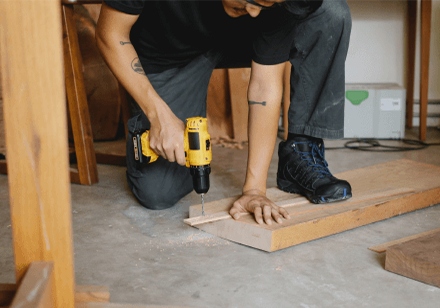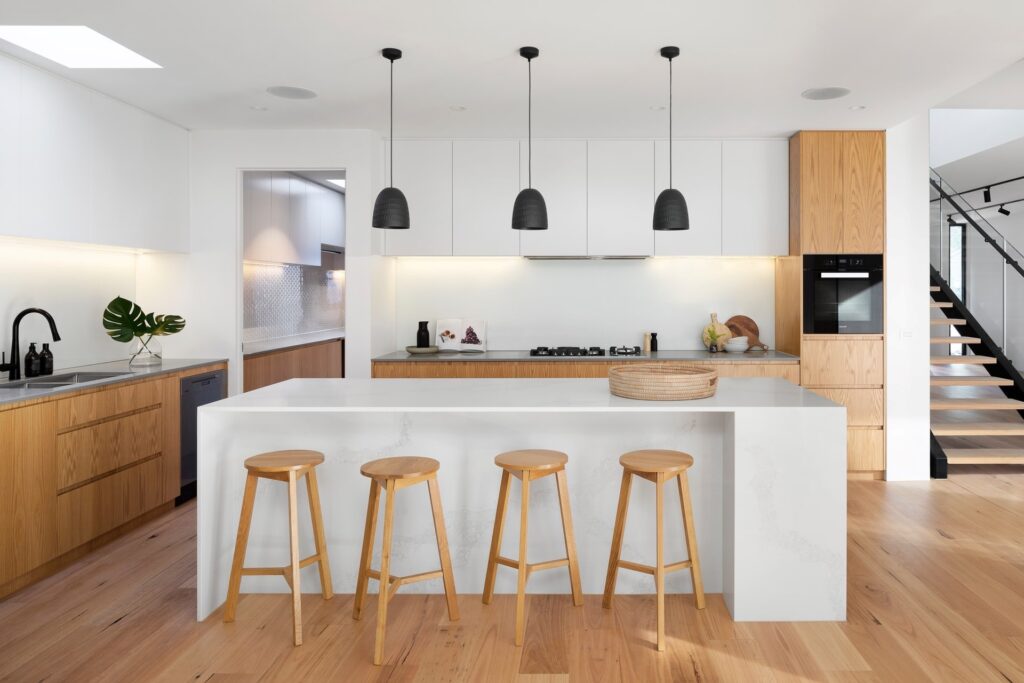Welcome to our comprehensive guide on understanding the cost of hiring a builder in Christchurch. Whether you’re planning to build your dream home, renovate an existing space, or tackle a small-scale project, knowing what to expect in terms of expenses is crucial. This article aims to demystify the various factors that influence builder costs, from the scope and complexity of your project to material choices and labor rates. We’ll also explore average prices for different types of projects and offer practical tips for budgeting and selecting the right builder. By the end of this guide, you’ll be well-equipped to make informed decisions and embark on your building journey with confidence.
On average, the cost of hiring a builder in Christchurch varies based on the project’s scope, materials, and labor rates. New home construction typically costs between $2,500 to $4,000 per square meter, while renovations can range from $20,000 to $200,000 depending on the extent of the work. Small-scale projects like decks and garages generally cost between $5,000 and $30,000. To get an accurate estimate, it’s essential to request detailed quotes from multiple builders and consider factors like permits, site preparation, and contingency funds.
Understanding Builder Costs
Understanding builder costs is essential for anyone planning a construction project. Builders play a crucial role in turning architectural designs into reality, ensuring that the construction is safe, functional, and up to code. This section will break down the responsibilities of a builder and the various types of building projects they handle, providing insight into what influences the costs involved.
What Does a Builder Do?
A builder is a professional who oversees the construction, renovation, or repair of buildings. Their responsibilities are vast and can include project management, hiring and supervising subcontractors, securing permits, and ensuring compliance with building codes and regulations. Here’s a closer look at what a builder does:
Project Management: Builders coordinate all aspects of a construction project from start to finish. They manage timelines, budgets, and resources, ensuring everything runs smoothly and on schedule.
Supervising Subcontractors: Builders hire and oversee the work of various subcontractors, such as electricians, plumbers, and carpenters, to ensure that all aspects of the project meet quality standards.
Permits and Regulations: Builders are responsible for obtaining necessary permits and ensuring the project complies with all local building codes and safety regulations.
Quality Control: They conduct regular inspections to ensure the construction meets the required standards and specifications.
Builder vs. Other Construction Professionals
It’s important to distinguish between builders and other construction professionals to understand their specific roles and contributions to a project:
Architects: Architects are primarily responsible for the design and planning of a building. They create detailed plans and blueprints, focusing on aesthetics, functionality, and compliance with zoning laws. While architects lay the groundwork for a project, builders bring those designs to life.
Contractors: The term “contractor” is often used interchangeably with “builder,” but they can differ. A contractor is generally responsible for the day-to-day oversight of a construction site, management of vendors and trades, and communication of information to all involved parties. A builder can take on the role of a contractor but is often more directly involved in the construction work itself.
Types of Building Projects
Builders handle a wide range of projects, each varying in complexity and cost. Understanding the type of project you are planning can help you anticipate potential expenses and manage your budget more effectively.
New Home Constructions: Building a new home from the ground up is a significant undertaking. This type of project involves extensive planning, design, and construction phases. Costs can vary widely depending on the size of the home, the materials used, and the complexity of the design.
Renovations and Extensions: Renovating an existing home or adding extensions can be a cost-effective way to increase living space or modernize a property. Builders often encounter unexpected challenges during renovations, such as structural issues or outdated wiring, which can impact the overall cost.
Small-Scale Projects: Smaller projects like building a deck, garage, or garden shed are typically less complex and less expensive than new home constructions or major renovations. However, even small projects require careful planning and skilled labor to ensure they are completed to a high standard.
Understanding these aspects of builder costs can help you make informed decisions when planning your construction project. By knowing what a builder does and the types of projects they handle, you can better estimate your budget and ensure your project runs smoothly from start to finish.
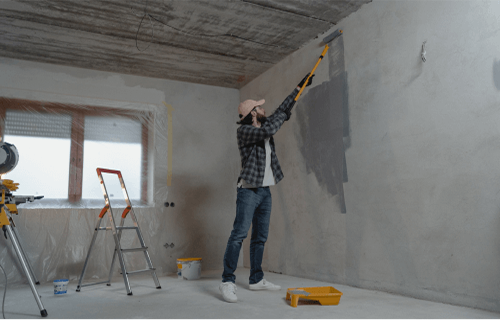
Factors Influencing The Cost Of A Builder In Christchurch
When considering hiring a builder in Christchurch, several factors can significantly influence the overall cost. Understanding these elements can help you plan your budget more effectively and ensure you make informed decisions. Here are the key factors to consider:
Scope of the Project
Complexity and Size of the Project
The complexity and size of your project are primary determinants of cost. A larger, more intricate project requires more time, resources, and labor, which naturally increases the overall expense. For instance, building a multi-story home with custom features will be more costly than constructing a simple, single-story house with a standard design.
Custom Builds vs. Standard Designs
Custom builds typically come with a higher price tag compared to standard designs. Custom homes often require unique architectural plans, specialized materials, and tailored construction techniques, all of which add to the cost. In contrast, standard designs, which are pre-planned and widely used, tend to be more cost-effective due to streamlined processes and bulk purchasing of materials.
Materials and Quality
Impact of Material Choices on Cost
The materials you choose play a significant role in the overall cost of your build. High-end materials, such as premium hardwoods, imported tiles, or bespoke fixtures, can substantially increase your expenses. Conversely, opting for more economical, yet still durable, materials can help keep costs down without compromising on quality.
Comparing Different Material Options and Their Price Ranges
It’s essential to compare various material options and their associated costs. For example, using timber framing instead of steel can lower costs, but each has its benefits and drawbacks. Researching and discussing these options with your builder can help you find a balance between cost and quality that suits your budget and preferences.
Labor Costs
Hourly Rates vs. Project-Based Pricing
Builders may charge either hourly rates or project-based pricing. Hourly rates can give you a more transparent view of labor costs but can also lead to unpredictability in the final bill if the project takes longer than expected. Project-based pricing, on the other hand, provides a fixed cost for the entire job, which can help with budgeting but may include contingencies for unexpected delays or issues.
Experience and Qualifications of the Builder
The experience and qualifications of your builder will also influence costs. Highly experienced and reputable builders often charge more for their services due to their expertise and proven track record. While hiring a less experienced builder might save you money upfront, it could lead to higher costs down the line if the quality of work is not up to standard.
Permits and Regulations
Necessary Permits and Their Costs
Building in Christchurch requires obtaining various permits, which come with their own costs. These permits ensure that your construction complies with local regulations and standards, protecting both the builder and the homeowner. The cost of these permits can vary depending on the nature and scale of your project.
Compliance with Christchurch Building Codes
Ensuring compliance with Christchurch’s building codes is crucial. Non-compliance can result in fines, delays, and even the need for costly modifications. Builders familiar with local codes can help navigate these regulations efficiently, but their expertise may come at a higher price.
Site Preparation
Costs Associated with Site Preparation
Site preparation is another critical cost factor. This includes tasks such as excavation, foundation work, and leveling the site. The extent of site preparation needed depends on the condition of the land and the complexity of the project.
Challenges Specific to Christchurch’s Geography
Christchurch’s unique geography can present specific challenges that influence site preparation costs. For example, areas prone to flooding or those with unstable soil may require additional foundation work or specialized construction techniques, increasing the overall cost. Understanding these geographic challenges and planning accordingly can help mitigate unexpected expenses.
In conclusion, multiple factors influence the cost of hiring a builder in Christchurch, from the scope and complexity of the project to the materials used, labor costs, necessary permits, and site preparation requirements. By carefully considering these elements and discussing them with your builder, you can create a realistic budget and ensure a smooth construction process.

Average Costs Of Hiring A Builder In Christchurch
When considering building projects in Christchurch, understanding the average costs involved is crucial for effective budgeting and planning. Here’s a comprehensive look at what you might expect to pay when hiring a builder in Christchurch, broken down into three main categories: new home construction, renovations and extensions, and small-scale projects.
New Home Construction
Building a new home is a significant investment, and costs can vary widely based on the type and size of the home you want to build. Here’s a detailed breakdown:
Cost Per Square Meter: On average, the cost of building a new home in Christchurch ranges from $2,500 to $4,000 per square meter. This range depends on several factors, including the quality of materials, the complexity of the design, and the level of customization you desire.
Examples of Cost Variations
Standard Homes: For a standard home with basic finishes, you might expect to pay around $2,500 per square meter. This type of home includes essential features without extravagant upgrades.
Mid-Range Homes: If you opt for mid-range finishes, which include higher-quality materials and a few custom features, the cost could increase to approximately $3,000 to $3,500 per square meter.
Luxury Homes: For a luxury home with premium materials, custom designs, and high-end finishes, costs can rise to $4,000 or more per square meter. These homes often include unique architectural elements and extensive customization.
Renovations and Extensions
Renovating an existing home or adding extensions can breathe new life into your living space. However, these projects come with their own set of costs:
Average Costs for Common Renovation Projects
Kitchen Renovation: A typical kitchen renovation can cost between $20,000 and $50,000, depending on the size of the kitchen and the quality of the materials used.
Bathroom Renovation: Renovating a bathroom generally ranges from $10,000 to $30,000. This cost includes plumbing, tiling, fixtures, and finishes.
Living Room Extensions: Extending a living room might cost between $50,000 and $100,000, varying based on the size of the extension and the materials chosen.
Factors Affecting Costs
Scope of Work: The more extensive the renovation or extension, the higher the cost. This includes structural changes, additions of new rooms, and significant layout alterations.
Materials: The quality and type of materials significantly impact costs. Premium materials and finishes will drive up the overall expenditure.
Labor: Labour costs can vary depending on the complexity of the project and the expertise required. Specialized skills and high-demand builders may charge more.
Small-Scale Projects
For smaller projects like decks, garages, and fencing, costs are generally more manageable, but they still require careful consideration:
Typical Costs
Decks: Building a deck typically costs between $200 and $500 per square meter. The total cost depends on the size of the deck and the materials used.
Garages: Constructing a single-car garage can range from $20,000 to $40,000, while a double-car garage might cost between $35,000 and $70,000.
Fencing: Installing a fence usually costs between $100 and $300 per linear meter, depending on the material and design.
Value for Money Considerations
Longevity: Investing in high-quality materials might increase upfront costs but can save money in the long run due to reduced maintenance and longer lifespan.
Functionality: Consider the functionality and utility of the project. For example, a well-built deck can enhance outdoor living space and increase property value, providing a good return on investment.
Aesthetics: The visual appeal of the project can also affect its value. Attractive designs and quality finishes can enhance the overall look of your property, making it more desirable and potentially more valuable.
In summary, the costs of hiring a builder in Christchurch can vary significantly based on the type of project, the quality of materials, and the complexity of the work involved. By understanding these costs and factors, you can make informed decisions and ensure your building project stays within budget while meeting your expectations.

Budgeting For Your Building Project
Embarking on a building project is an exciting journey, but one of the most crucial steps is setting and managing your budget. This ensures that your dream home or renovation doesn’t become a financial nightmare. Here’s how to navigate the financial side of your project effectively.
Setting a Realistic Budget
Tips for Estimating Costs Accurately
Creating a realistic budget begins with accurate cost estimation. Start by researching the average costs for similar projects in your area. Talk to friends or neighbors who have recently completed similar projects, and use online tools and calculators designed for construction cost estimation.
Break down your project into smaller tasks and assign a cost to each. This includes materials, labor, permits, and any additional fees. Don’t forget to account for the size and complexity of your project, as these factors significantly impact costs.
Importance of Including a Contingency Fund
Even with the most meticulous planning, unexpected expenses can arise. This is where a contingency fund comes in. It’s wise to set aside at least 10-15% of your total budget for unforeseen costs. This financial cushion can cover unexpected issues like structural problems, price increases in materials, or delays due to weather. A contingency fund ensures that your project stays on track and reduces stress, knowing you’re prepared for surprises.
Getting Quotes
How to Request and Compare Quotes from Multiple Builders
To get the best value for your money, it’s essential to gather quotes from multiple builders. Start by creating a detailed project brief outlining your requirements, timelines, and any specific preferences. This helps builders provide accurate quotes.
When you receive quotes, compare them thoroughly. Don’t just look at the total price—examine what’s included. Is there a detailed breakdown of costs? Are materials and labor itemized separately? This transparency helps you understand where your money is going and ensures there are no hidden costs.
What to Look for in a Quote
A comprehensive quote should include a detailed scope of work, material specifications, labor costs, and a timeline. Look for clarity in terms and conditions, such as payment schedules and warranties. Be wary of quotes that seem too good to be true—they might be cutting corners or missing essential details that could lead to additional costs later.
Cost-Saving Tips
Ways to Reduce Costs Without Compromising Quality
Building projects can be expensive, but there are ways to save money without sacrificing quality. One effective strategy is to source materials yourself. Sometimes, you can find high-quality materials at a lower cost than what your builder might charge. Additionally, consider using alternative materials that offer similar aesthetics and durability at a fraction of the price.
Another tip is to schedule your project during off-peak seasons. Builders often offer better rates when they’re less busy. Also, avoid making changes once the project has started, as alterations can lead to delays and increased costs.
DIY Options and When to Use Them
If you have the skills, taking on some DIY tasks can significantly reduce labor costs. Tasks like painting, landscaping, or installing fixtures are often manageable for homeowners. However, be honest about your abilities—some jobs, especially those involving structural work or specialized skills, are best left to professionals to ensure safety and quality.
In conclusion, budgeting for your building project involves careful planning and smart decision-making. By setting a realistic budget, gathering detailed quotes, and finding cost-saving opportunities, you can bring your project to life without financial strain. Remember, a well-managed budget is the foundation of a successful building project.
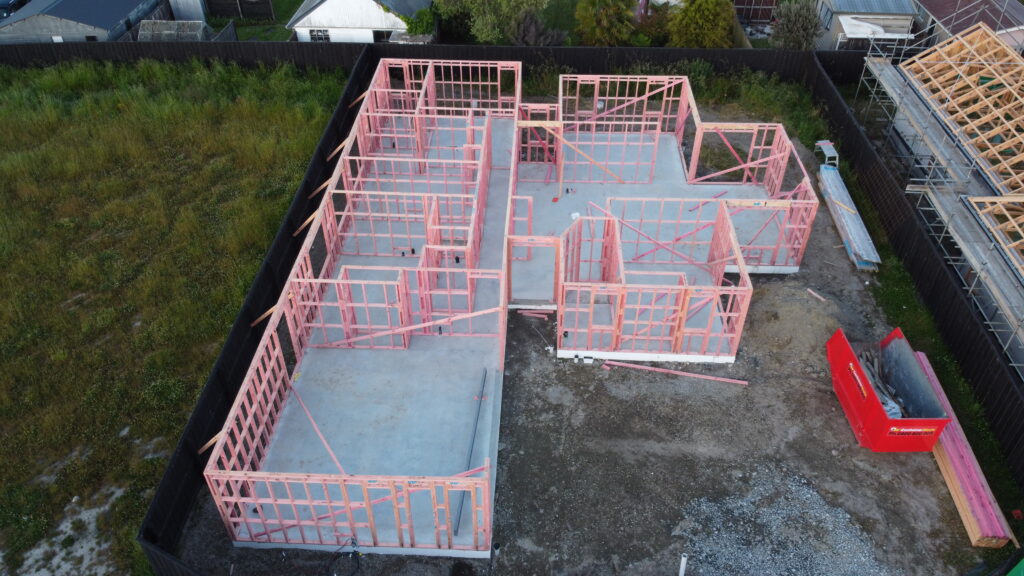
Choosing The Right Builder
Selecting the right builder for your project is crucial to ensure the success and quality of your construction. This section will guide you through the key qualities to look for in a builder, essential questions to ask potential builders and the importance of checking references and reviews.
Qualities to Look For
When choosing a builder, it’s essential to consider their experience, reputation, and past projects. An experienced builder with a solid track record can provide peace of mind and ensure your project is completed to a high standard. Here are some specific qualities to look for:
Experience: A builder with several years of experience is likely to have encountered and overcome various challenges, making them well-equipped to handle your project. Look for builders who have worked on projects similar to yours.
Reputation: A good reputation is often a reflection of the builder’s reliability and quality of work. Ask around in your community or check online forums for feedback on the builder’s performance.
Past Projects: Reviewing a builder’s past projects can give you insight into their craftsmanship and attention to detail. Ask for a portfolio or visit some of their completed projects if possible.
Licenses and Certifications: Ensure the builder holds the necessary licenses and certifications. In New Zealand, for example, look for a Licensed Building Practitioner (LBP), which indicates they meet industry standards and are qualified to carry out building work.
Questions to Ask Potential Builders
Once you have a shortlist of potential builders, it’s important to ask the right questions to determine if they are the right fit for your project. Here are some key questions to consider:
- What is your experience with projects similar to mine? This helps you gauge their familiarity and expertise with the type of work you need.
- Can you provide references from past clients? Speaking with previous clients can give you a sense of their satisfaction with the builder’s work.
- What is your process for handling unexpected issues or changes? Understanding their problem-solving approach can help you anticipate how they will handle any challenges that arise.
- What is your estimated timeline for completion? Ensure their timeline aligns with your expectations and schedule.
- How do you ensure quality and safety on the job site? This question is crucial to ensure they adhere to safety standards and deliver high-quality work.
Checking References and Reviews
Checking references and reviews is an essential step in choosing the right builder. Here’s why it’s important and how to go about it:
Importance of Checking References: Speaking with past clients can provide valuable insights into the builder’s work ethic, reliability, and quality of work. Ask about their overall experience, how the builder handled any issues, and whether they would hire them again.
How to Find and Interpret Online Reviews: Online reviews can give you a broader perspective on the builder’s reputation. Look for reviews on multiple platforms, such as Google, Houzz, and local trade associations. Pay attention to recurring themes in the feedback, both positive and negative. Be wary of reviews that seem overly positive or negative, and try to find balanced and detailed accounts of customers’ experiences.
By considering these factors and taking the time to vet potential builders thoroughly, you can make a well-informed decision that will help ensure your project is completed successfully and to your satisfaction.

Real-Life Examples And Case Studies
Success Stories
When considering the cost of civil construction in New Zealand, real-life examples can provide invaluable insights. Let’s explore a few success stories that highlight the diversity of projects and the associated costs.
Example 1: Residential Home Build in Auckland
Sarah and John embarked on building their dream home in Auckland. Their project included a modern two-story house with high-quality finishes. The total cost came to NZD 800,000, including land purchase. Sarah noted, “Working with a reliable contractor who provided transparent pricing was key to staying within our budget.”
Example 2: Commercial Office Space in Wellington
A tech startup decided to construct a bespoke office space in Wellington. Their focus was on creating an eco-friendly, open-plan workspace. The project cost totaled NZD 1.2 million. According to the project manager, “We prioritized sustainable materials and innovative design, which slightly increased our costs but added long-term value.”
Example 3: Rural Farm Development in Canterbury
Mark, a farmer in Canterbury, decided to develop new barns and a processing unit. This large-scale project aimed to enhance productivity and included several outbuildings and infrastructure improvements. The total expenditure was around NZD 500,000. Mark shared, “Investing in quality materials ensured durability, which was crucial for our operations.”
Interviews with Homeowners
Interviewing homeowners who have recently completed their building projects can offer first-hand insights into the construction process, challenges faced, and how they managed their budgets.
One homeowner, Jane, shared her experience: “We did a lot of research before choosing our builder. This diligence paid off as it helped us avoid unexpected costs and delays. Our builder also suggested cost-effective alternatives that didn’t compromise on quality.”
Another couple, Tom and Emily, emphasized the importance of planning: “We spent months in the planning phase to ensure every detail was accounted for. This upfront investment in time saved us money and headaches down the line.”
Lessons Learned
Common Pitfalls and How to Avoid Them
Even the most meticulously planned construction projects can encounter pitfalls. Here are some common issues and tips on how to sidestep them:
1. Underestimating Costs
Pitfall: Underestimating costs can lead to budget overruns.
Solution: Always add a contingency budget of at least 10-15% to cover unexpected expenses.
2. Delays in Project Timeline
Pitfall: Delays can inflate costs and disrupt plans.
Solution: Have a clear project timeline and ensure regular communication with your contractor. Flexibility can also help accommodate unforeseen delays.
3. Poor Quality Materials
Pitfall: Using substandard materials can result in higher long-term costs.
Solution: Invest in quality materials that offer durability and require less maintenance.
Advice from Builders and Previous Clients
Experienced builders and past clients offer a wealth of knowledge. Here are some of their top tips:
Thorough Planning: According to builder Mike, “Thorough planning is crucial. Spend ample time in the design and budgeting phase to avoid costly changes later.”
Regular Updates: Client Susan recommends, “Stay involved throughout the project. Regular updates and site visits help catch issues early.”
Quality over Quantity: Builder David advises, “Opt for quality materials and craftsmanship. It might be more expensive initially, but it saves money in the long run by reducing repair and maintenance costs.”
By learning from these real-life examples and heeding the advice of experienced professionals, you can navigate the complexities of civil construction in New Zealand more effectively, ensuring your project is successful and within budget.
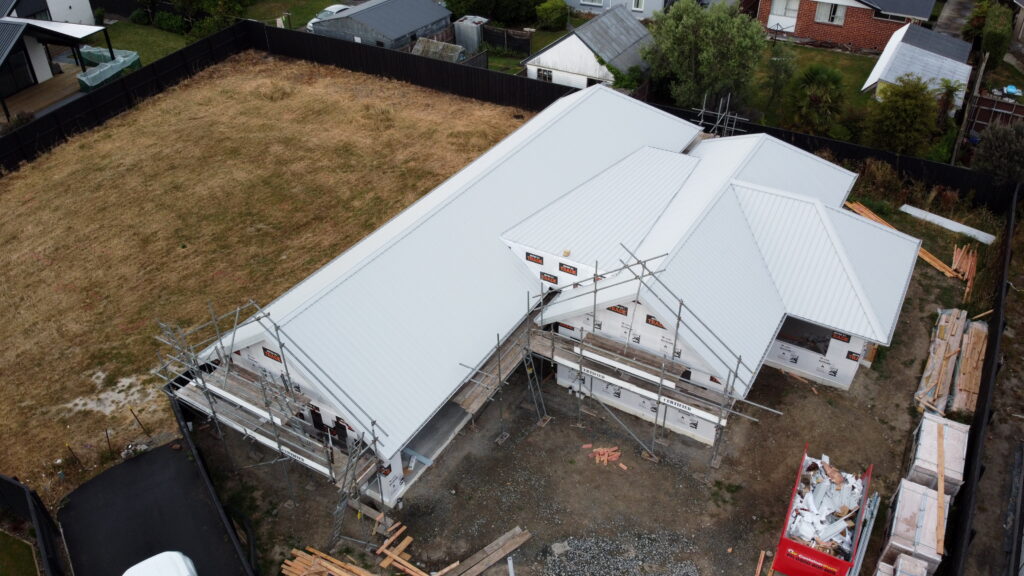
FAQs: About Cost Of A Builder Christchurch
Conclusion
In conclusion, understanding the key factors influencing builder costs in Christchurch is essential for anyone planning a construction project. Factors such as materials, labor, project complexity, and local market conditions all play a significant role in determining overall costs. With this knowledge, readers can confidently move forward with their building projects, equipped with the information necessary to make informed decisions. For those ready to take the next step, reaching out to local builders for detailed quotes and consultations is highly recommended. This will provide a clearer picture of potential expenses and help in planning and budgeting effectively.

